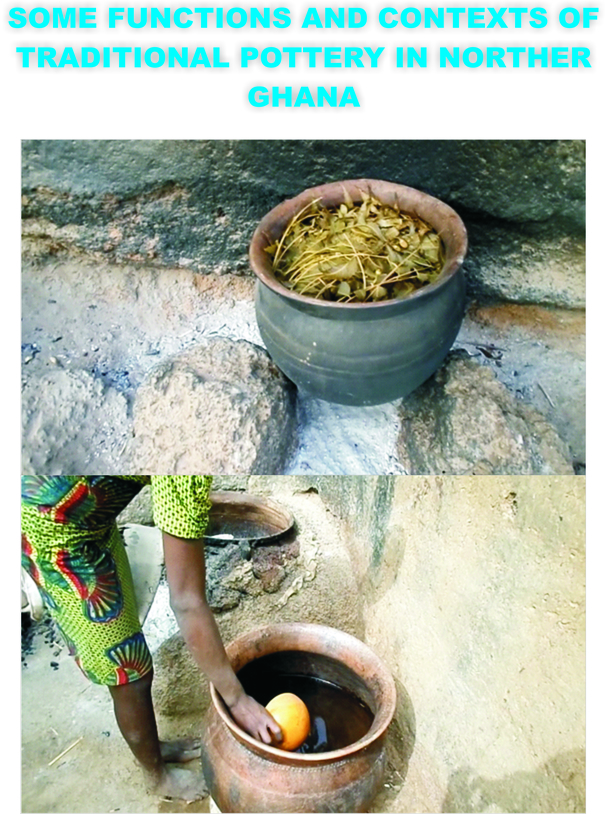The aim of this paper is to identify and document some functions and contextsof traditional pottery within northern Ghana. The descriptive approach of the qualitative research methodology was employed. Interview and observation methods were employed as the data collection methods. They were used to ascertain reasons why some potteryare engaged in certain contexts andfor certainfunctions. The data was tabulated to include the traditional name of the pot, the function and the context. The data were then analyzed and the indications were that, the potters make interesting forms of traditional pottery for different purposes; and the local name given to each pot perfectly defines their functions and contexts within northern Ghana. On the flipside of the coin, the function and context of every pot can also be dictated by its end user. Base on this, the researchers were able to discover some functions and contexts of the indigenous pottery which were put into some groups. On the first hand, the researchers classified the functions into five groups of purpose. These included: domestic purposes, religious purposes, agricultural purposes, rites of passage purposes and traditional herbal medicinal purposes. On other hand, seven groups of contexts were also discovered at the time of the study. These included: courtyards, bedrooms, bathrooms, graveyards, kitchens, shrines, and hencoops as places where these pots can be found among the people of the Northern Ghana.

